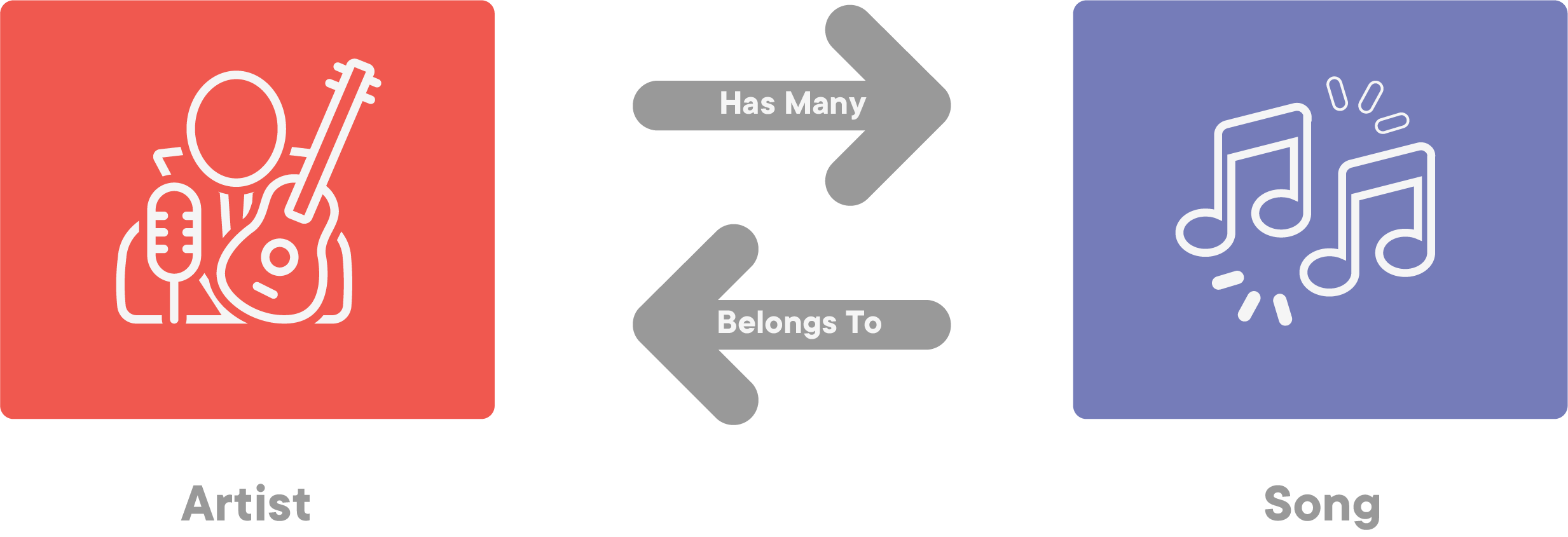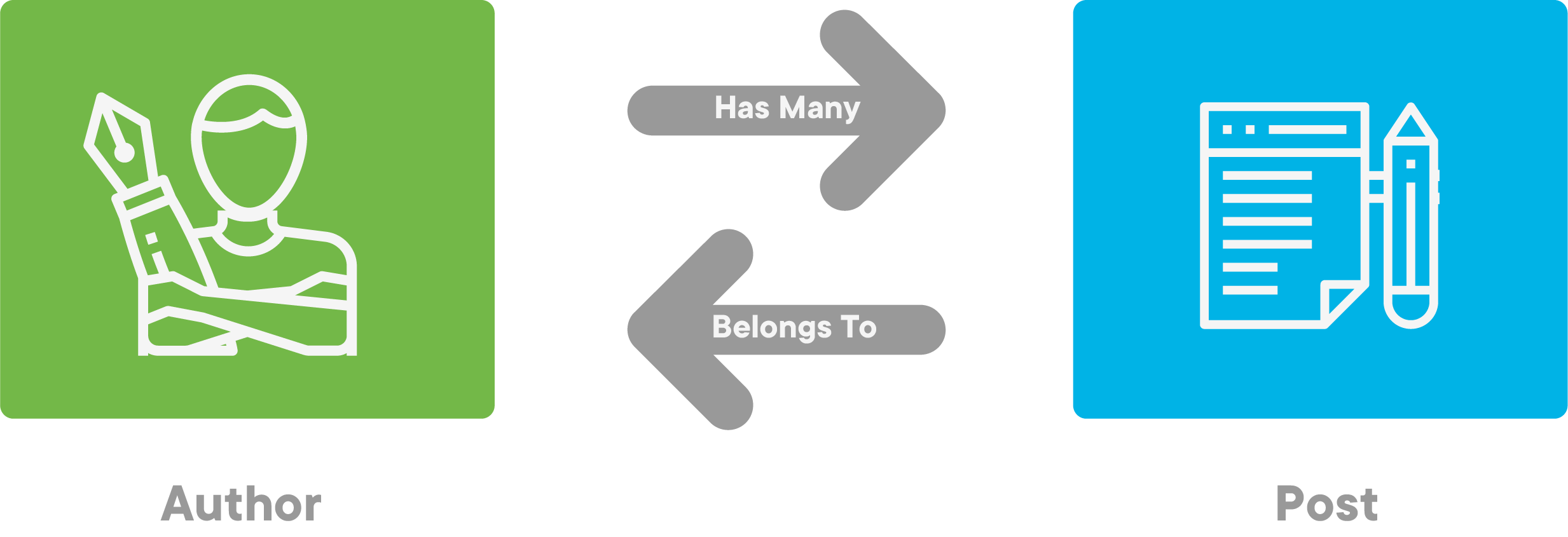- Build out the has many/belongs to relationship between two classes
- Build methods that use the has many/belongs to relationship between two classes
- Use a class variable to track data about a class
- Build a class method to expose data stored in a class variable
In this lab, we'll be dealing with two sets of classes: the Artist and Song
classes and the Author and Post classes. We'll start with Artist and
Song.
An artist should have many songs and a song should belong to an artist:
Because of the has many/belongs to relationship between your classes, the
Artist tests, i.e. the tests in spec/artist_spec.rb, rely on some code in
the Song class and vice versa. You will have to build out both the classes as
you go.
We recommend starting out by getting some of the initial Artist tests passing
and switching to write code in the Song class as directed by the test output.
Once your Artist and Song tests are passing, you will follow a similar
process for Author and Post.
This lab is primarily test-driven. So run the test suite with the learn test
command to get started. Read the test output very carefully to help guide you
through. First, read through the guidelines below and refer back to them as you
complete the lab.
How can an artist have many songs and a song belong to an artist? We'll need to make sure that an individual song has a reference to the artist it belongs to, and that an individual artist has a reference to a list of its songs.
-
To establish the association from the song side, you will need to create
artist=andartistinstance methods in the Song class. -
To establish the association from the artist's side, an individual artist will need a method that returns a collection of all of their songs.
Recall from the previous lesson that we want to do this in a way that maintains a single source of truth. Therefore, our Song class will need:
- a class variable that holds all instances of every song that's been created in an array,
- a class method that returns the class variable holding those instances, and
- a
#songsinstance method that returns the subset of songs belonging to a given artist.
The #add_song_by_name method should take in an argument of a name, use that
argument to create a new song and then associate the objects. The method doesn't need to return anything, just create the association.
Build a method some_song.artist_name that returns the name of the artist of
the given song.
This method should use, or extend, the has many/belongs to relationship you're
building out. If a song has an artist, you can call: some_song.artist and
return an actual instance of the Artist class. Since every artist has a name,
some_song.artist.name should return the name of the Artist instance
associated with the given song. Your #artist_name method should utilize this
relationship.
Note: We like our code to be robust, i.e. not easily breakable. Make sure
your #artist_name method will not break if the given song does not have an
artist. In this case, your method should return nil.
You'll be required to write a class method that returns the total number of songs that have been created. How can we get access to total number of songs from the artist class?
Once you have all the tests passing for the Artist and Song classes, begin working through the tests for Author and Post. As with artists and songs, an author should have many posts and a post should belong to an author:
Once again, because of the has many/belongs to relationship between your
classes, the Author tests rely on some code in the Post class and vice
versa. You will have to build out both the classes as you go.
We recommend starting out by getting some of the initial Author tests passing
and switching to write code in the Post class as directed by the test output.

